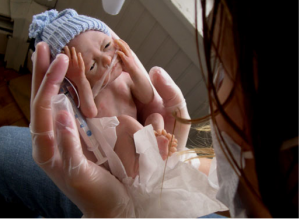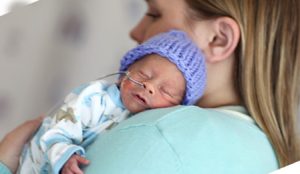Authors: Anne-Cécile Petit, Julien Eutrope, Aurore Thierry, Nathalie Bednarek, Laurence Aupetit, Stéphanie Saad, Lauriane Vulliez, Daniel Sibertin-Blanc, Sylvie Nezelof, Anne-Catherine Rolland
OBJECTIVES:
Very preterm infants are known to be at risk of developmental disabilities and behavioural disorders. This condition is supposed to alter mother-infant interactions. Here we hypothesize that the parental coping with the very preterm birth may greatly influence mother-infant interactions.
METHODS:
100 dyads were included in 3 university hospitals in France. Preterm babies at higher risk of neurodevelopmental sequelae (PRI>10) were excluded to target the maternal determinants of mother-infant interaction. We report the follow-up of this co
ort during 1 year after very preterm birth, with regular assessment of infant somatic state, mother psychological state and the assessment of mother-infant interaction at 12 months by validated scales (mPPQ, HADS, EPDS, PRI, DDST and PIPE).
RESULTS:
 We show that the intensity of post-traumatic reaction of the mother 6 months after birth is negatively correlated with the quality of mother-infant interaction at 12 months.
We show that the intensity of post-traumatic reaction of the mother 6 months after birth is negatively correlated with the quality of mother-infant interaction at 12 months.
Moreover, the anxious and depressive symptoms of the m
other 6 and 12 months after birth are also correlated with the quality of mother-infant interaction at 12 months.
By contrast, this interaction is not influenced by the initial affective state of the mother in the 2 weeks following birth.
In this particular population of infants at low risk of sequelae, we also show that the quality of mother-infant interaction is not correlated with the assessment of the infant in the neonatal period but is correlated with the fine motor skills of the baby 12 months after birth.
CONCLUSIONS:
This study suggests that mothers’ psychological condition has to be monitored during the first year of very preterm infants’ follow-up.
It also suggests that parental interventions have to be proposed when a post-traumatic, anxious or depressive reaction is suspected.
original article: https://www.ncbi.nlm.nih.gov/pubmed/27022953
